Laurent N’Dri Pokou died on November 13, 2016, after a long illness. He was 69 years old. Pokou in the 1970s symbolized the success of postcolonial African football and, like his fellow Ivorian, Didier Drogba, many years later, captured the imagination of an entire generation of Africans.
Pokou was born on August 8, 1947, in Abidjan, Ivory Coast. Growing up in a working-class family, his father worked as a railway company office clerk, football was everywhere. He was first spotted in neighborhood matches by a talent scout from ASEC Mimosas, one of Abidjan’s two powerhouse clubs (the other being Africa Sports).
ASEC quickly signed Pokou and deemed him so valuable that when the Pokou family relocated to the northern city of Bouaké in 1962, the club sent for the youngster and managed to convince his family to allow Laurent to return to Abidjan. Once back with Mimosas, Pokou sharpened his skills and transformed into an archetypal goalscorer: mobile, opportunistic, a fine dribbler, and clinical finisher. It was no surprise that he earned his first call up to Ivory Coast’s national team—known as the Elephants—just in time for the 1968 African Cup of Nations in Ethiopia.
In the semifinal in Asmara (then part of Ethiopia), 21-year-old Pokou netted twice in Ivory Coast’s 4-3 extra time loss to Ghana. He also scored the only goal in a 1-0 win over Ethiopia in the third-place final. Pokou’s six goals meant he was crowned top scorer of the continental showcase.
Two years later, at the African Cup of Nations in Sudan, Pokou confirmed his status as one of the most prolific African strikers of his time. His five goals in a 6-1 rout of Ethiopia put the world on notice. The Elephants reached the semifinals, but once again lost to Ghana’s Black Stars in extra time. Pokou’s eight goals made him the tournament’s top scorer for a second consecutive time and his fourteen goals set a career scoring record for the African Cup of Nations. (Twenty-six years later, Samuel Eto’o of Cameroon finally broke it.)
Unfortunately, in February 1971 Pokou suffered a terrible knee injury during a typically combative ASEC vs. Africa Sports derby. After an operation in France and seven months of diligent rehabilitation, he returned to the pitch.
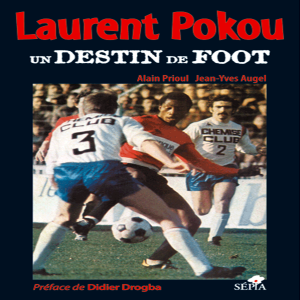 Meanwhile, according to the French journalist Alain Prioul, author of a biography of Pokou, the Ivorian President Félix Houphouët-Boigny had been preventing a number of overseas clubs from securing Pokou’s services. Finally, in December 1973 the president dropped his opposition to a transfer. ASEC, having won two league titles in a row, sold Pokou to French club Stade Rennaise (aka Rennes).
Meanwhile, according to the French journalist Alain Prioul, author of a biography of Pokou, the Ivorian President Félix Houphouët-Boigny had been preventing a number of overseas clubs from securing Pokou’s services. Finally, in December 1973 the president dropped his opposition to a transfer. ASEC, having won two league titles in a row, sold Pokou to French club Stade Rennaise (aka Rennes).
As soon as he arrived in Brittany, the Ivorian striker began to deliver. Playing only the second half of the 1973/74 season, he scored seven goals in thirteen matches. The following season, Pokou increased his goal total to fourteen, but Rennes were relegated to the second division.
In 1975/76, he was having a brilliant year with seventeen goals in just twelve matches when he suffered another serious knee injury. After an operation and rehabilitation, he returned to the starting side and contributed six goals in the final stretch of the season.
In 1976/77 Pokou transferred to Nancy where he played alongside future three-time Ballon d’Or winner, Michel Platini. But bad luck struck again: another knee injury! This latest setback sharply curtailed his playing time over two physically and emotionally painful seasons. Pokou decided to return to Rennes for the 1978/79 season, even if that meant playing in the second division. His injury-plagued career in France ended on a sour note: he assaulted a referee on the pitch and received an eighteen-month suspension.
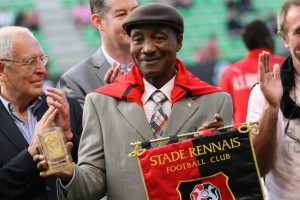 Pokou returned home to ASEC Abidjan in 1980. He earned two more caps for Ivory Coast at the 1980 African Cup of Nations before retiring. After hanging up his boots, Pokou spent many years as a youth development coach for the Ivorian Football Federation (FIF) and also served as a FIFA Ambassador.
Pokou returned home to ASEC Abidjan in 1980. He earned two more caps for Ivory Coast at the 1980 African Cup of Nations before retiring. After hanging up his boots, Pokou spent many years as a youth development coach for the Ivorian Football Federation (FIF) and also served as a FIFA Ambassador.
Long before Didier Drogba became a household name, another talented, though distinctly less fortunate, Ivorian named Laurent Pokou did much to strengthen African football’s self-confidence and to legitimize the continent’s players status as big-time stars in the global game.
Tag: France
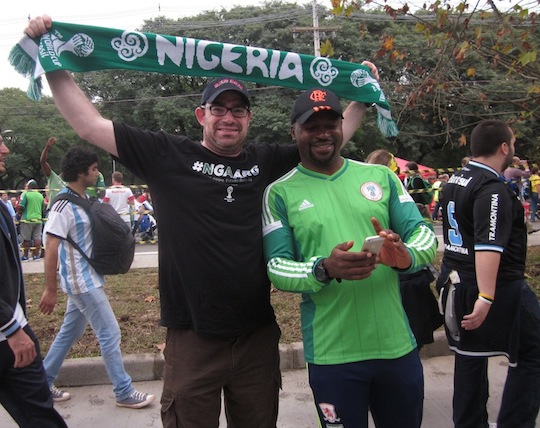
Guest Post by *Derek Charles Catsam
I recently returned from the 2014 World Cup in Brazil. It was a remarkable experience in a beautiful country. Everywhere we went people were gracious, joyful hosts. We ate fantastic churrasqueira (the Brazilian barbecue that will fuel my dreams for months) and drank among friends. The games were tremendous, the colorful visiting fans (with special mention to the dancing, chanting, singing, drinking Argentine throngs) made the World Cup the event that it is. The protests were more intermittent than expected. But the issues raised were as valid as ever.
I was based in Porto Alegre in the state of Rio Grande do Sul on Brazil’s southern border with Uruguay and Argentina. I attended four matches in Estadio Beria-Rio, the home of Sports Club Internacional: France-Honduras, Algeria-South Korea, Argentina-Nigeria, and the round of 16 match pitting eventual champions Germany against the Algeria. With 32 teams competing, the first two weeks of the World Cup are an unparalleled Carnival of Nations. Porto Alegre was in the midst of a Brazilian winter, hardly freezing, but occasionally raw and damp. The bikinis and swimming shorts that many of you saw as the regular going-to-commercial interludes on ESPN were many hundreds of miles north.
The tournament, which equaled the most goals (171) ever scored in a World Cup, was spectacularly entertaining and Germany is certainly a worthy champion. But once the confetti cleared, the last drinks were downed, tourists returned home, and Brazilians shook off the shameful way the Seleção flamed out of the tournament (and I do not for one second believe that the presence of Thiago Silva and Neymar against Germany and the Netherlands would have made much difference—Brazil’s problems were systemic) a familiar question looms: Was hosting the World Cup worth it?
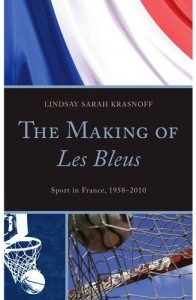 The Football Scholars Forum 2013-14 season resumes on February 12 with a discussion of Lindsay Krasnoff’s The Making of Les Bleus: Sport in France, 1958-2010.
The Football Scholars Forum 2013-14 season resumes on February 12 with a discussion of Lindsay Krasnoff’s The Making of Les Bleus: Sport in France, 1958-2010.
The book “traces the Fifth Republic’s quest to create elite athletes, a compelling tale that serves as a prism through which to investigate the larger history of France, the evolution of society, the impacts of the media revolution, and the government’s mission of public health. It provides perspective on how France coped with and adapted to the post-1945 world and underscores just how much things have changed—yet still remained the same.”
An active member of the Football Scholars Forum (FSF), Krasnoff is an historian of France and Modern Europe, with expertise in sports, media, and foreign policy. You can listen here to Lindsay discussing her book on the New Books in Sports podcast.
To participate in the online 90-minute session, which begins at 8pm Eastern Time, please email me (alegi.peter AT gmail.com) your Skype name (if I don’t already have it) so you can be added to the conference call.
FSF has two more public events scheduled in the lead up to the 2014 World Cup in Brazil. In March (25/26, time TBD), the fútbol think tank is trying something new. Instead of members reading a common book, each participant will read a different fútbol book (or lengthy article) and give a 5-7 minute report about it to the rest of the group. The idea is to produce a sort of “state of the field” snapshot from various world regions and academic disciplines.
Then in April, I’ll be joining several FSF soccerati in attendance at the “Soccer as the Beautiful Game: Football’s Artistry, Identity & Politics” conference at Hofstra University (Long Island, NY). In addition to scholarly papers and presentations, the conference features a special FSF-sponsored roundtable on “Academics, Journalists, and the Changing Trends in Fútbol Writing.” I’ll be doing a post about the Hofstra roundtable in the coming weeks.
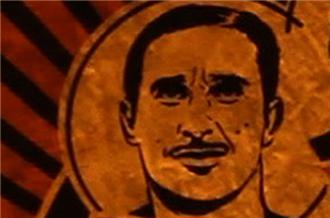 On April 13, 1958, in the midst of Algeria’s war of independence, ten Algerian professional players surreptitiously left France for Tunis. Among them was 21-year-old St. Etienne forward Rachid Mekhloufi, the central character in the second installment of the “Football Rebels” documentary on Al Jazeera.
On April 13, 1958, in the midst of Algeria’s war of independence, ten Algerian professional players surreptitiously left France for Tunis. Among them was 21-year-old St. Etienne forward Rachid Mekhloufi, the central character in the second installment of the “Football Rebels” documentary on Al Jazeera.
Through evocative interviews, archival footage, and on-camera visits to important historical sites, the documentary crafts a lively, humanistic, and emotional account of the FLN team. In tours of North Africa, the Middle East, Eastern Europe, and East Asia between 1958 and 1961, the Algerians compiled a record of sixty-five wins, thirteen draws, and thirteen losses. Playing entertaining, attacking football, the FLN side heightened international awareness of the Algerian fight against French colonialism and garnered broad support for the FLN, at home and abroad. The Algerians even sought to become part of FIFA, but the world body rejected the application.
In a highpoint of the film, Mekhloufi remembers how wearing a national uniform, flying a national flag, and singing “Kassaman” (We Pledge)–which later became independent Algeria’s national anthem–in a stadium full of ordinary fans as well as guerrillas instilled pride in him and made an imagined “Algeria” real. “What I got out of that FLN team,” says Mekhloufi in the closing moments of the film, “couldn’t have been bought with all the gold in the world.” Indeed, by putting patriotism before profit and crystallizing an emerging national identity, the FLN footballers propelled the Algerian people’s quest for equality and freedom. What an incredibly powerful story about sport and human rights. Watch, listen, and learn.
For more details about this revolutionary football team, see my post “Death of a Striker, Fighter, and Socialist” on Ben Bella and my book African Soccerscapes. Other helpful sources are Ian Hawkey’s Feet of the Chameleon, Laurent Dubois’s Soccer Empire, and, for French readers, R. Saadallah and D. Benfars’s La Glorieuse Équipe du FLN and Michel Nait-Challal’s Dribbleurs de l’indépendance.
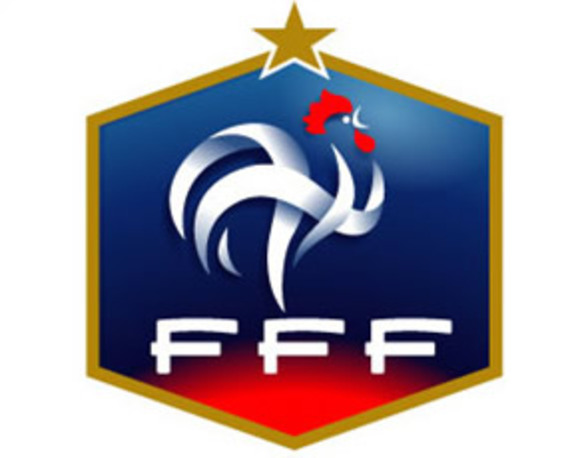
An investigative report by the Mediapart website revealed that numerous managers of the National Technical Directorate (DTN) and the French Football Federation (FFF) approved the “principle of discriminatory quotas” in November 2010. Their objective? To limit the number of players of West African and North African origin.
According to Mediapart, Laurent Blanc — manager of Les Bleus — would have played an active role in those discussions. It is alleged that Blanc highlighted the problem of players who spend three years in training in France and later go abroad to wear other teams’ jerseys. “Something like that cannot not create problems, it applies to the Latin Americans as well,” said Philippe Tournon, press officer of the national team.
At the heart of the problem, the report claims, is growing dissatisfaction among French managers, coaches, and administrators about players who are trained in France, develop into potential national team stars, and who then instead choose — for whatever reason — to represent another country thanks to their double citizenship. “The fact is, there is a large presence of bi-national players at the junior level,” said Fernand Duchaussoy, FFF President, “and some of them later do not want to be part of the national French team.” FIFA rules allow a player with double citizenship to play for a junior national team in one country and still go on to play for another country’s senior national team.
In response to the uproar that followed these revelations, Sports Minister Chantal Jouanno suspended FFF technical director Francois Blaquart, the author of a “quota chart” published on Thursday (May 5) by Mediapart. The explosive issue of racial quotas in French football is embedded in wider debates about immigration, race, and national identity in contemporary France. As Laurent Dubois puts it in Soccer Empire: The World Cup and the Future of France, “When a team takes to the field, the fans say, ‘They are us, and we are them.’ But sometimes that can also force a question: ‘Who are they? And who are we?'”
Uruguay’s Opening Gambit
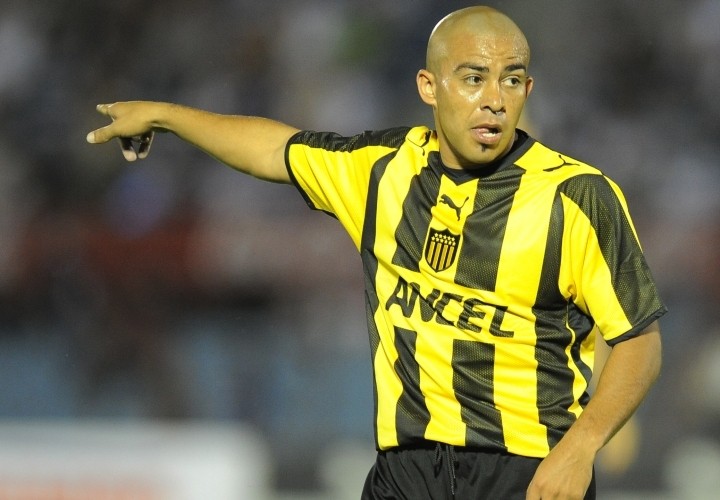
The wires are reporting Oscar “El Maestro” Tabarez has already named his Uruguay team for the opening match against France on Friday. This is a classic opening gambit designed to take advantage of current French insecurities.
The French don’t know what they are doing in South Africa. “El Maestro” has just signaled the Uruguayans do. “The system we have chosen can adapt to the different things we could face against France,” said “El Maestro”.
Mauricio Victorino who plays for Universidad de Chile and midfielder Egidio Arevalo Rios (pictured above) who enforces the midfield for Penarol in Montevideo, are solid squad players, but not stars. So what is behind El Maestro’s opening gambit? What is he really saying by including Vicotorino and Rios? What is he really up to?
The reflex among some Uruguayan commentators and bloggers is to express disbelief and sigh. But El Maestro is thinking deep here, which is what he has to do if Uruguay are going to go deep into the tournament and win the World Cup.
Uruguay do not need stars to beat France is also the message here.
Classic World Cup: France vs Senegal, 2002
http://www.youtube.com/watch?v=JigE4eC7XeI&w=500&h=307&rel=0
The opening match of the 2002 World Cup in May 2002 in Seoul, South Korea. Defending champions France against World Cup first timers Senegal. France had a uninspiring run to the World Cup (world champions don’t qualify). Senegal has a young team–standouts: Papa Bouba Diop, Kalilou Fadiga, El Hadji Diouf. France threatens first. David Trezeguet hits the bar. Then that goal. Watch for yourself.
* Senegal finished second and France last in their group. In the round of 16 Senegal beat Sweden 2-1, then lose 0-1 to Turkey in the quarterfinals (after extra time). Most of its players moved to the English Premier League (most notably El Hadji Diouf to Liverpool), but the team declined soon after. Oh, and France they’re in the World Cup after Thierry Henry used his hands.